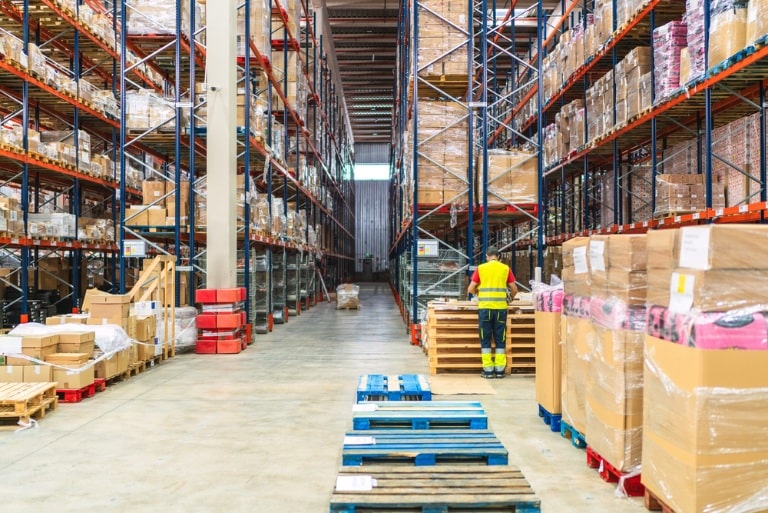From Safety to Efficiency: Resources for Wholesale Distributors

Wholesale distributors are the crucial link in the supply chain, ensuring that retail shelves stay stocked and businesses run smoothly. The pace and scale of wholesale distribution also carry inherent risks and inefficiencies.
Ensuring safety, enhancing operational efficiency, and making informed business decisions are not just priorities; they are necessities in a competitive market. Keep reading to uncover the pivotal resources and strategies that can help elevate wholesale distribution services to new heights.
Streamlining Distribution Processes with Advanced Technology
Wholesale distributors are boosting efficiency by adopting advanced technologies like warehouse management systems (WMS), which provide real-time inventory tracking and streamline the pick-and-pack process. Mobile devices also play a big role, enabling employees to manage inventory and process orders quickly without being tied to a desk.
Integrating ERP solutions gives distributors a centralized way to manage everything from inventory to customer relationships. Automation tools like conveyor belts and drones further speed up operations, reducing repetitive tasks and allowing staff to focus on higher-value work.
Optimizing Warehouse Safety Protocols for Distributors
Warehouse safety is vital for distributors, as it protects employees and keeps operations running smoothly. Key practices like wearing protective gear, using clear signage, and providing hands-on training can greatly reduce the risk of accidents. Technology also helps as automation and robotics take on hazardous tasks, making the environment safer for everyone.
To stay compliant and proactive, distributors must follow OSHA standards, conduct regular safety audits, and listen to employee feedback. Central station monitoring also plays a major role by ensuring fire alarms and sprinkler systems are monitored around the clock, enabling quick emergency response. Programs like wellness checks and emergency drills further strengthen a culture of safety and reliability.
Navigating the Complexities of Wholesale Inventory Management
Efficient inventory management is vital for wholesale distributors to avoid the pitfalls of overstocking and understocking. Strategic use of data analytics and demand forecasting enables informed decisions by revealing customer behavior, sales trends, and seasonal shifts. Just-in-time practices help minimize lead times and reduce storage costs.
Staying responsive to market trends and sales data ensures inventory levels are continuously optimized. Strong collaboration with suppliers also supports smoother operations, allowing for greater synchronization between supply and distribution systems.
Integrating these systems enhances visibility and control, leading to more effective inventory management and improved ability to meet customer demands without unnecessary surplus or shortages.
Leveraging Data Analytics for Enhanced Wholesale Distribution Decision-Making
Data analytics is transforming how wholesale distributors make decisions by revealing trends that support smarter strategies. Through analysis of large data sets, companies can improve inventory management, customer service, and operational efficiency. Studying purchase histories helps tailor marketing campaigns and drive sales, while also identifying issues like high return rates that need quick attention.
Predictive analytics offers the ability to forecast market changes and customer preferences, giving distributors an edge in managing stock. Integrating analytics into daily operations fosters a culture grounded in data, where decisions across all departments are guided by measurable insights and aligned with performance goals for ongoing progress.
Building a Sustainable and Efficient Wholesale Distribution Network
Creating a sustainable wholesale distribution network benefits both the environment and the bottom line. Green practices like optimizing delivery routes and using alternative energy in warehouses reduce costs and appeal to eco-conscious clients. Building a resilient supply chain by diversifying suppliers and transportation methods helps manage disruptions.
Industry collaboration, such as sharing transportation and warehousing resources, cuts redundancy and boosts efficiency. Promoting a culture of continuous improvement, where operations are regularly reviewed and feedback is encouraged, supports long-term adaptability.
These strategies position distributors to remain efficient and responsive amid changing market conditions, while also maximizing resource utilization and minimizing environmental impact.
Overall, the success of wholesale distributors hinges on their ability to foster a safe work environment, streamline processes through technology, manage inventory intricately, make data-driven decisions, and build a sustainable and resilient network.
By paying close attention to these areas, distributors can ensure profitability, compliance, and customer satisfaction in an increasingly complex and competitive wholesale landscape.




